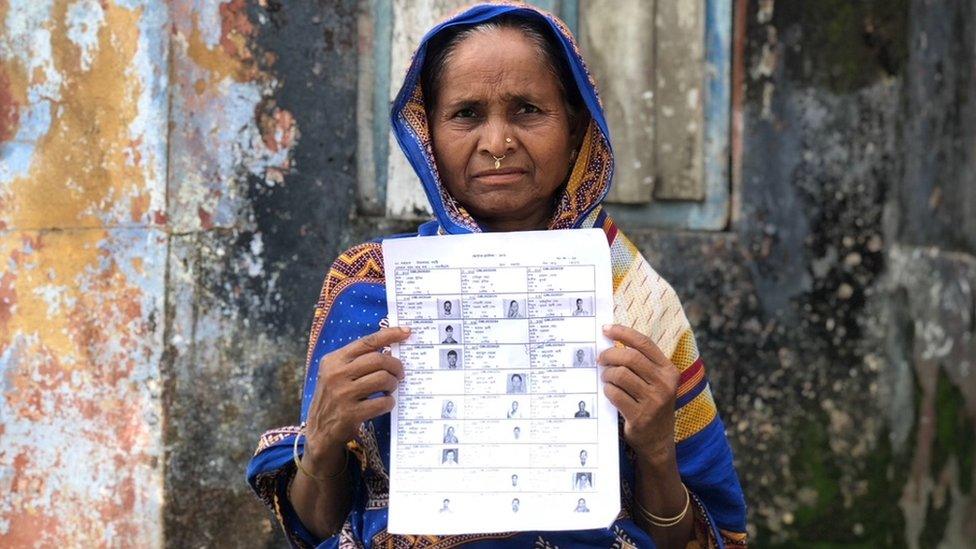Citizen Amendment Bill protests: The protesters standing up to police
- Published
Women shield their friend from being beaten with sticks by police
The video is shocking: a group of unarmed young women trying to defend their friend from a group of Indian police officers in riot gear wielding bamboo poles.
Just moments earlier, the officers had dragged the man out of a house, repeatedly lifting their sticks high above their heads before bringing them down with as much force as possible.
And yet the young women seemed unafraid as they formed a human shield against the onslaught.
"We just wanted to protect our friend," Ladeeda Farzana told BBC Hindi's Dilnawaz Pasha.
Footage of the confrontation is less than a minute in length, but it captured the attention of a nation being swept by protests and allegations of police brutality following the passing of the controversial Citizenship Amendment Bill (CAB) which some say is anti-Muslim, and others say will prompt large-scale migration.
The bill, which provides citizenship to non-Muslim religious minorities escaping persecution in Pakistan, Bangladesh and Afghanistan, has sent thousands of people out in the streets.
The protests in the capital Delhi on Sunday, however, descended into clashes with police. At least 50 people - both officers and protesters - ended up in hospital.
Ladeeda and her friends were among those protesting at Delhi's Jamia Milia University on Sunday when Shaheen Abdullah was dragged out of a house where he said they had been hiding.
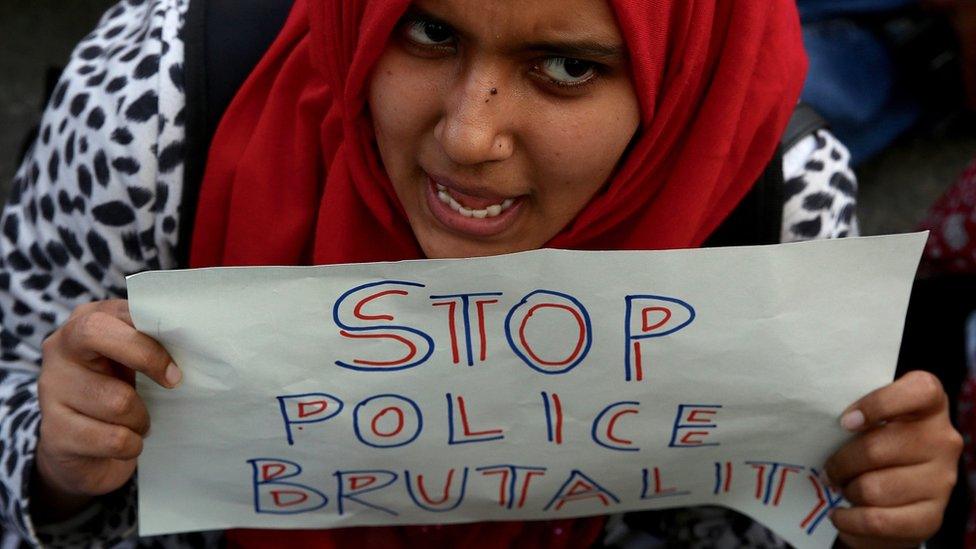
On Monday, his face was covered in cuts. And yet, he remained defiant and determined to continue to protest against the bill.
"It is not about us [and the video], it is about the bill that will come," he told BBC Hindi. "It is not going to happen to me and those girls, it is going to happen to every Muslim in this country.
"Please be aware, come out, be together and fight against this. It is our duty," Ladeeda, 22, added. "If we will not talk, then who will talk?"
'Raise your voice'
Earlier this week, the United Nations Human Rights office voiced concern that the bill - which has been approved by parliament - was discriminatory in nature.
But the Hindu-nationalist BJP government says there is no religious bias, and that the move aims to accommodate those who have fled religious persecution.
Muslims, it says, are not covered by the new law because they are not religious minorities in Pakistan, Bangladesh and Afghanistan, and therefore do not need India's protection.
For Ladeeda and her friends, the bill's ultimate aim seems obvious: "Everyone knows that the CAB is against Muslims."
That was why they decided to join with fellow students - including non-Muslims who fear the bill conflicts with India's secular traditions.
But then the police began their crackdown, storming the campus, breaking down its gates and firing tear gas inside the university library.
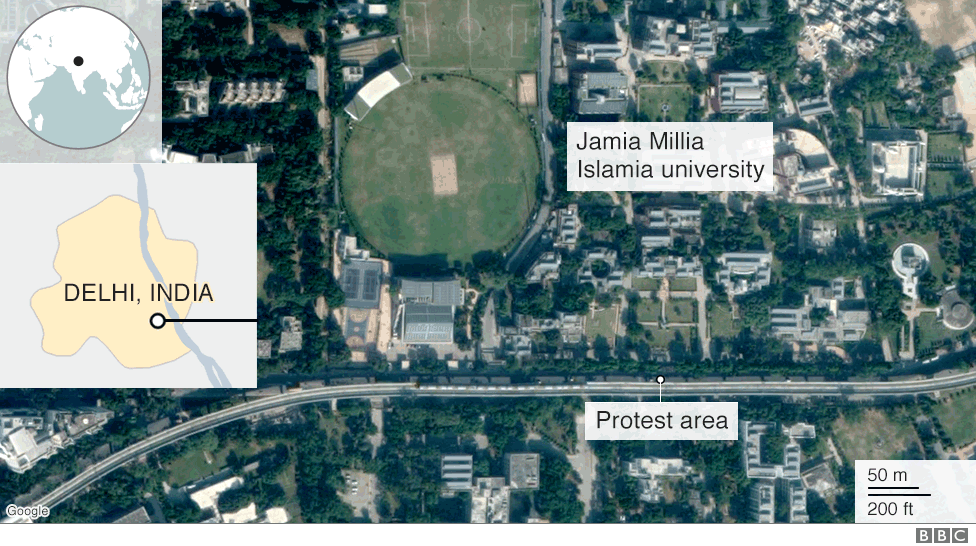
The video of the friends' non-violent stand against police was one of a number to go viral.
By the end of it, as the officers continued to hit Shaheen through Ladeeda and her friends' legs, the women threw themselves on top of him. The police - apparently defeated - walk away.
The police, however, have denied using excessive force. On Monday Delhi police spokesman MS Randhawa told reporters that officers had "exercised maximum restraint".
His words did little to quell the anger felt across the country by students who have come out in solidarity with those of Jamia Milia University.
"We are very happy to see these kind of things happening all over India," Ladeeda told journalist Barkha Dutt, external. "They are resisting CAB, they are raising their voice."
But that is not the only thing that Ladeeda's friend Ayesha Renna hopes people will take from the video. The student - one of the four who formed a human shield to defend Shaheen - hopes other women will follow in their footsteps and join the protests.
"Just get out," Ayesha said. "Men will be making you sit inside.... but not raise your voice. Wherever you want to, raise your voice. It is your right."
- Published16 December 2019
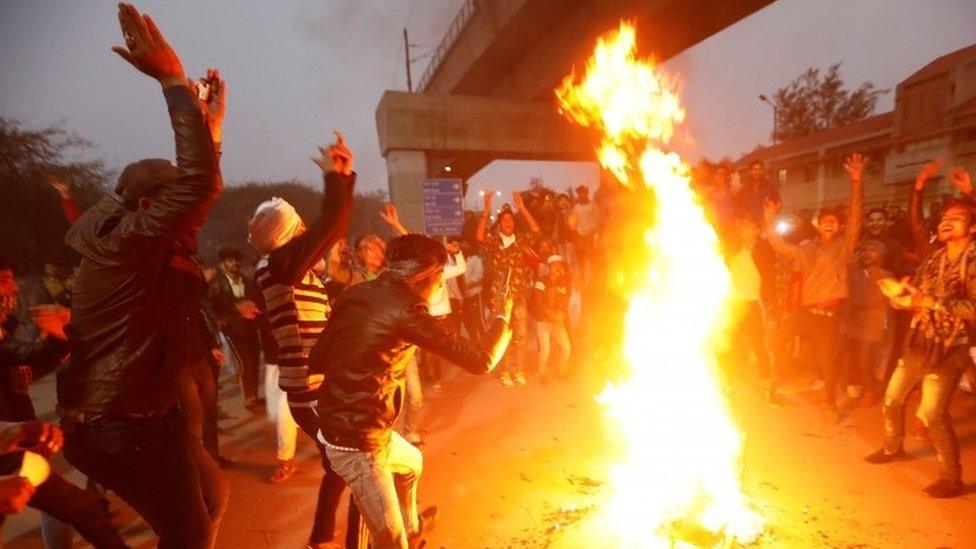
- Published12 March 2024
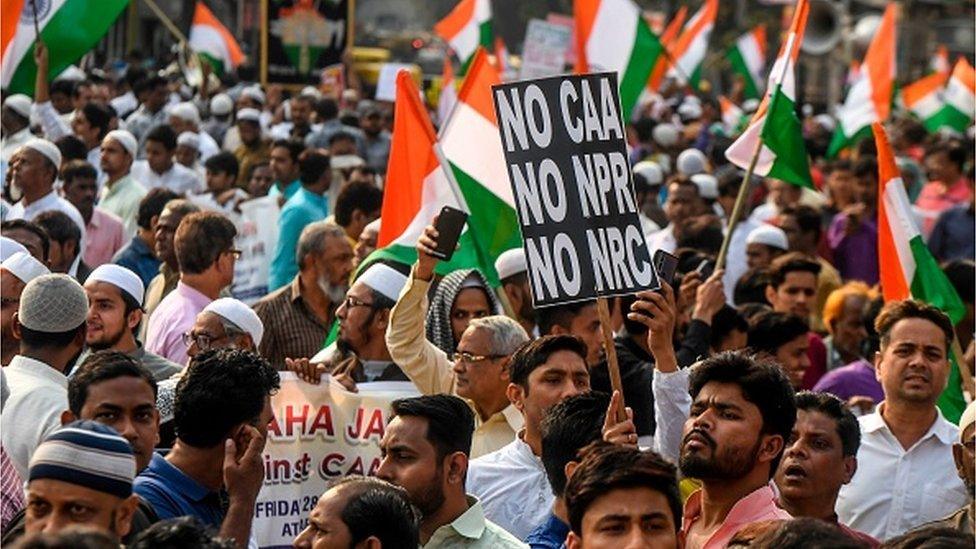
- Published14 March 2024
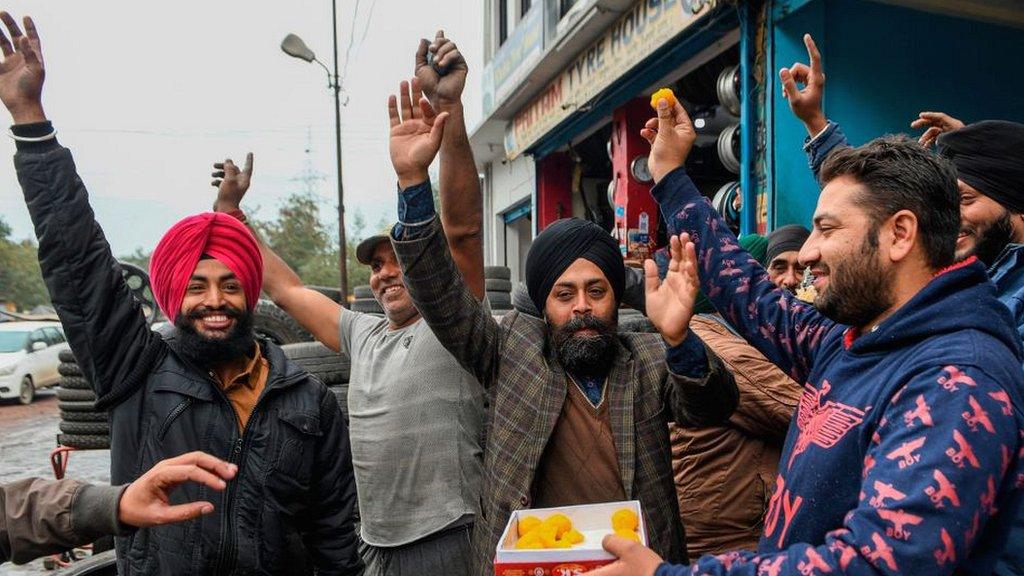
- Published12 December 2019
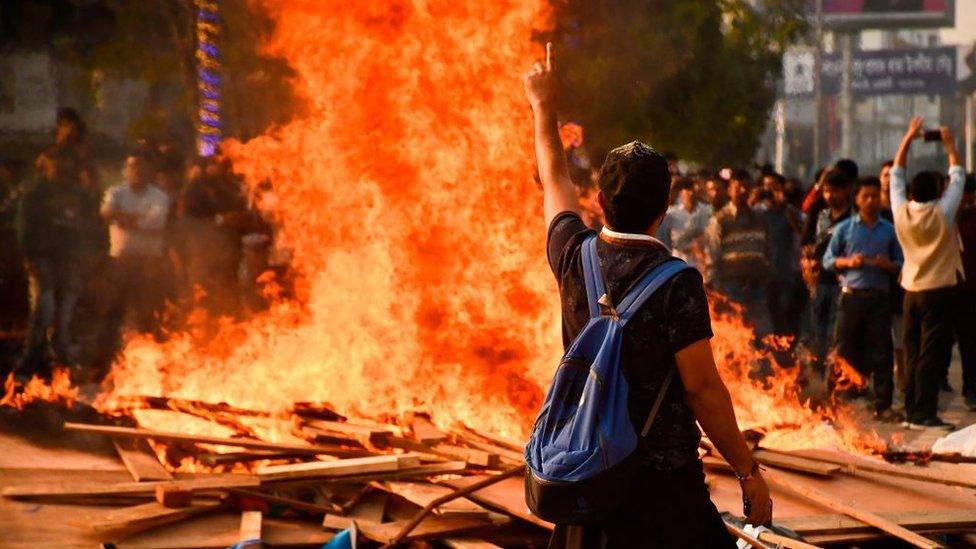
- Published30 July 2018
